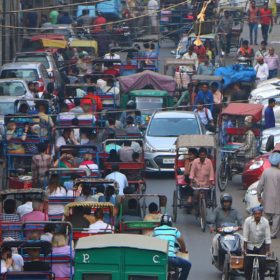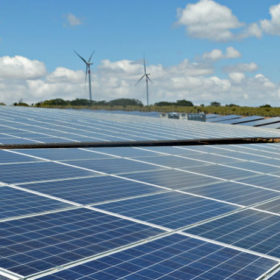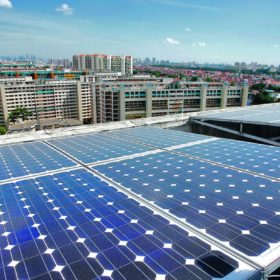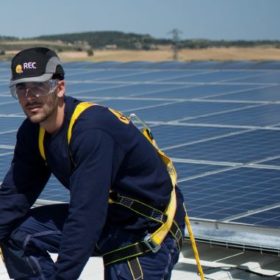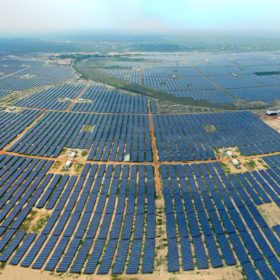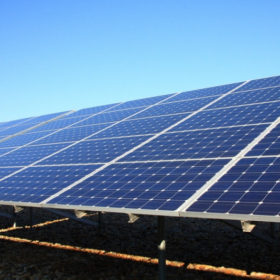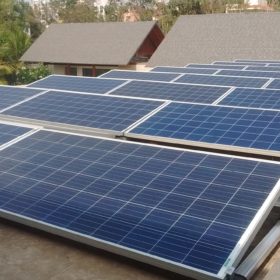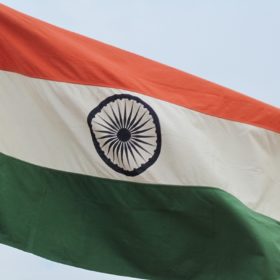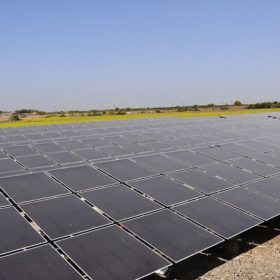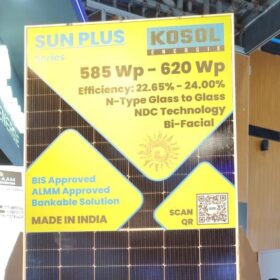India may miss solar PV target, says CEO survey
The country will achieve solar PV capacity of 50 to 75 GW by 2022 – a little over 60% of the 100 GW target. Total rooftop capacity will be less than 10 GW.
By 2030, EVs could outnumber the total vehicles in India today
To smoothen this transition, the country needs to build fast solar PV-powered charging stations. In 2017, there were only 220-250 operational charging stations in India, compared to 56,000 petrol stations.
India announces new policy for wind-solar hybrid systems
India has unveiled a national wind-solar hybrid policy that provides a framework for promotion of large grid connected wind-solar PV systems for optimal and efficient utilization of transmission infrastructure and land, reducing the variability in renewable power generation and thus achieving better grid stability.
Haryana launches scheme for solar-powered irrigation
In a long-awaited move, farming irrigation systems in Haryana will be powered by solar energy.
RE employs 10.3 million people, solar PV leads charge with 3.4 million jobs – IRENA
According to figures released by the International Renewable Energy Agency (IRENA), there are more than 10 million people working in the renewable energy industry. In 2017 alone, the sector added more than 500,000 jobs globally, up 5.3 % from 2016, with solar PV the biggest employer.
Uncertainty and opportunity loom for renewables sector — report
Uncertainty in the renewable energy sector continues to drive a “relentless focus on cost” to soften the impact of protectionism, subsidy cuts and rising interest rates throughout the world, EY says in its latest Renewable Energy Country Attractiveness Index (RECAI) report. But the evolving outlook for project finance, as well as the gradual maturation of technologies such as blockchain, present new challenges and opportunities.
India slips to 4th place in EY’s attractiveness index for solar PV investments
While China continues to top EY’s Renewable Energy Country Attractiveness Index (RECAI), India has slipped from second position to fourth, due to increasing investor concerns about possible solar import tariffs and disputes between developers and distribution companies.
MNRE: Rooftop PV targets missed, ground-mounted and off-grid exceeded
In the past financial year, India missed its rooftop solar PV targets, although it did exceed those for both grid-connected ground-mounted and off-grid systems, reports the Ministry of New and Renewable Energy. Bridge to India believes the government’s rooftop targets have been set at the wrong level and that around 10 GW will be installed by 2022, rather than 40 GW.
India’s safeguard measure on imported solar cells, modules needs more evidence
At the World Trade Organization’s Safeguard Committee Meeting, the European Union and Japan found that India’s safeguard measures on imported solar PV cells and modules need further investigation, and must be more conclusive. India replied, saying it has nothing to add.
Bids for bankrupt Moser Baer Solar expected this week
Expressions of interest (EoI) for the assets of bankrupt Moser Baer Solar are likely to be invited this week, resolution professional Arvind Garg announced. The company owes over Rs 1,000 crore (around US$149.8 million) to a number of lenders.
